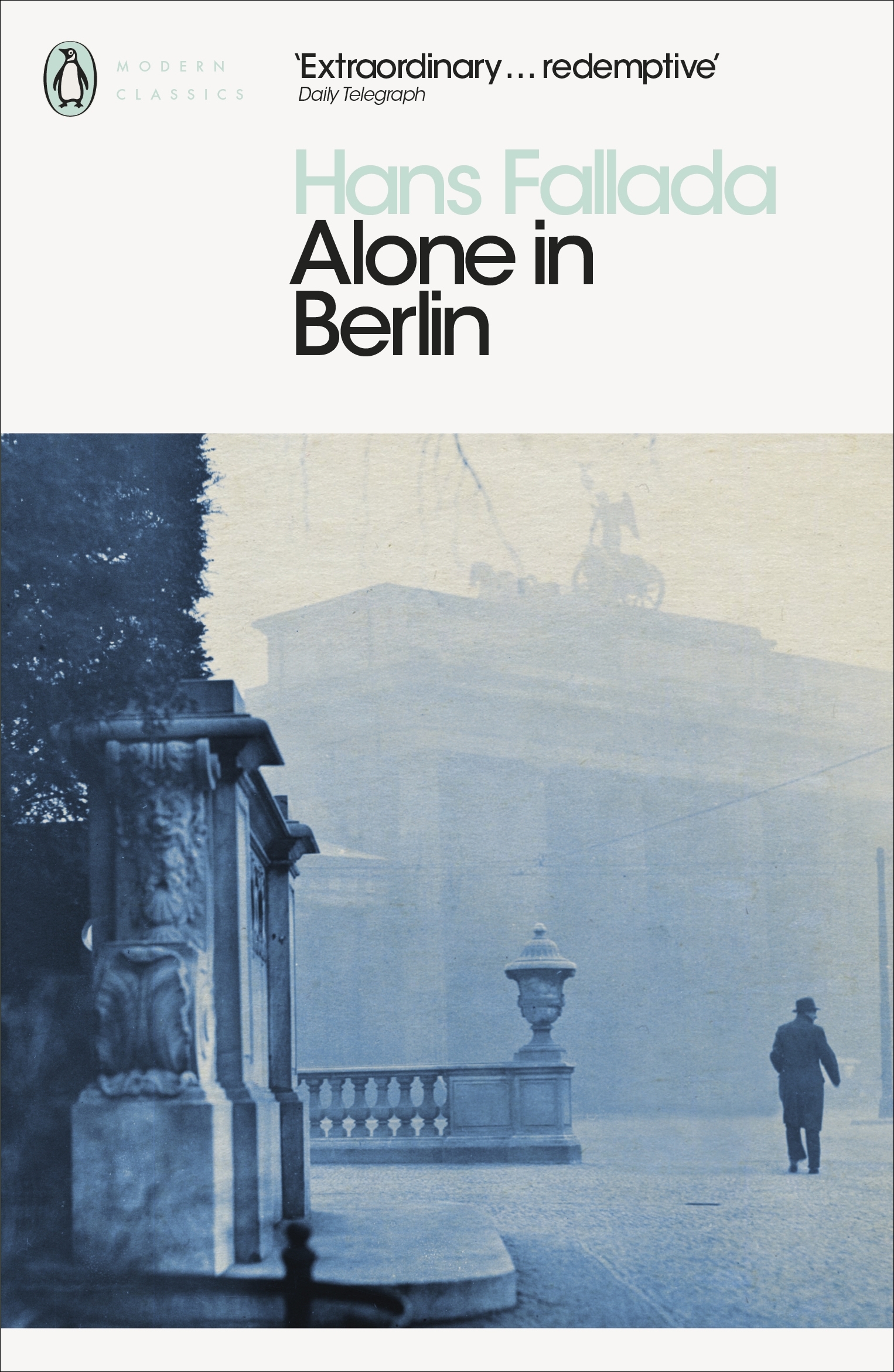Alone is Berlin
By Hans Fallada
I've never heard of this book before I noticed someone read it when I was travelling back from Berlin, this summer. Later I realised it's one of the classics to describe Hitler's Germany and how people lived in fear of him. It was the first anti-Nazi book after the world war written by a German. So I read it.
It is a very strong story. It starts very innocently. And describes slowly but surely how everyone takes sides, and everyone has to, at some point choose a side. Those that feel they can gain an advantage using open support of the führer use it like the Persickes. Those who are cowards are used. Those who can leach onto other people's fears use it to their advantage even if they are not in any way linked to the party, like Enno Kluge and Borkhausen. And then there comes a time where everyone is snitching on everyone else because everyone is afraid. So afraid, even high ranking inspectors of the Gestapo are not safe. Everyone is it someone else's mercy. And finally there are either supporters or silent observers who pretend to be supporters lest they are sent to concentration camps for being traitors.
Until of course, some people wake up and realise this that being silent is also a form of agreement. Some then decide to leave the party and Berlin, like Eva Kluge, a diligent postwoman who feels betrayed by her son. Some decide to quietly rebel by leaving enraging postcards across Berlin at public places instigating hatred against their führer, like Otto and Anna Quangel whose only son dies at war. And some decide that they have sinned too much in the name of the führer delivering good decent people as prisoners into the hands of drunken Gestapo officers and leave, like Inspector Escherich.
In the end, many die, through a sentence or murder or suicide or war. Those that are left pick of the pieces, forgetting the past yet remembering that this is a second chance at life to start afresh, building from scratch, like Kuno. Hans Fallada leaves you with some hope.
The book is slow but gives you a deep insight into how people think and goes though the brains of every type of German that lived during the times of the second world war, not those persecuted for being unGerman but those that were supposed to be the führer's people and how they accepted him in fear.
There is an afterword that's a short story taking us through the real life of Hans Fallada and his real name. How he was in despair of alcoholism when he was given the case of the Hemps who were sentenced for leaving post cards all around Berlin after a close kin died in war. He died soon after, before the book was published. He did however say that he wrote a great novel. And a great novel it is.
Fallada's style of writing is so matter of fact that it scares you the most. Like as though the never ending fear of a friendly neighbour snitching on you to the Gestapo is the most obvious thing.
Fallada's style of writing is so matter of fact that it scares you the most. Like as though the never ending fear of a friendly neighbour snitching on you to the Gestapo is the most obvious thing.
PS: Today is also the 25th anniversary of the fall of the Berlin Wall (though this book is not about it).


Comments
Post a Comment